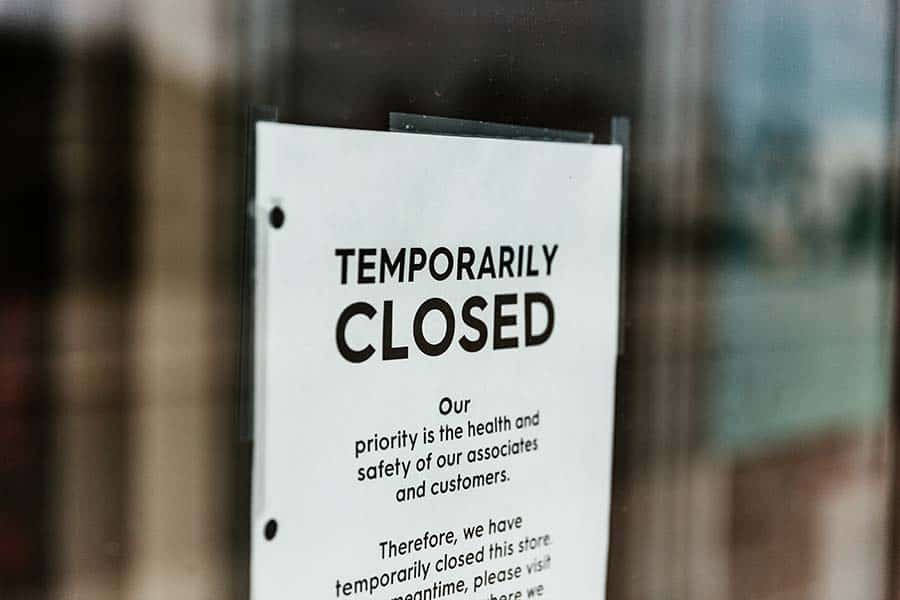BRC says that government must announce targeted business rates relief from April

Following the reveal of the UK Government’s detailed four-stage lockdown exit roadmap, the British Retail Consortium (BRC) says that further business support should be offered to prevent further job losses.
Beginning on 8 March, the government’s roadmap details four different stages for the country to ease out of the lockdown restrictions, with a five-week gap as a minimum in between each stage.
Step one sees children and students return to face-to-face education in schools and college and some easing of restrictions on outdoor gatherings. In step two, non-essential retail, personal care premises and public buildings will reopen, with most outdoor attractions and settings also reopening.
Step three sees most outdoor social contact rules lifted and for indoor settings, the rule of six or two households will apply. However, Prime Minister Boris Johnson clarified that this will be kept under review to see if numbers can safely increase indoors.
Finally, in step four, which will take place no earlier than 21 June, the government intends to remove all legal limits on social contact but the PM said that delays in between each stage would be implemented if necessary.
As England gradually moves out of lockdown and more people receive a COVID-19 vaccine, this should see businesses slowly return to some sort of normality.
During the lockdown exit plan, though, the government promised to increase support for businesses, self-employed people and those self-isolating. Boris Johnson said that further details would be provided in the upcoming budget on 3 March.
The BRC has welcomed the prime minister’s lockdown exit plan but said that more targeted support must be provided to businesses to prevent further job losses as they trade their way to recovery.
Responding to the PM’s roadmap, Helen Dickinson OBE, Chief Executive of the British Retail Consortium (BRC), said: “We welcome the additional clarity provided by the Prime Minister. While we are encouraged by a plan for non-essential stores to reopen, the heavy impact of the pandemic means some may never be able to.
“The cost of lost sales to non-food stores during lockdown is now over £22bn and counting. Every day that a shop remains closed increases the chances that it will never open again – costing jobs and damaging local communities.
“Non-essential shops are ready to reopen and have been investing hundreds of millions on making themselves Covid-secure. Government should remain flexible and allow non-essential retail to reopen as soon as the data suggests it is safe to do so. Until it is permitted, retailers will need continued support from Government. We welcome the PM’s call ‘not to pull the rug out’ from under businesses. To this end, the Government must act on three vital issues – rents, rates and grants.
“To avoid further job losses and permanent job closures, the Chancellor must announce a targeted business rates relief from April and extend the moratorium on debt enforcement, as well as removing state aid caps on Covid business grants. This would relieve struggling businesses of bills they cannot currently pay and allow them to trade their way to recovery.”
Mobility retailers in England have officially been classed as ‘essential’ by the government, meaning that they have been able to remain open during the lockdowns.
Despite this, some key dealers in the mobility sector said that whilst the classification has been beneficial, they have still experienced reduced business and higher operating costs during the lockdowns.
In February’s Trade Thoughts in THIIS Magazine, Alastair Gibbs, Managing Director of TPG DisableAids, said: “The ‘essential’ classification for our industry is, without doubt, a double-edged sword.
“On the positive side, it does mean we can continue to offer a service to our customers and play a part in keeping them safely out of institutional care settings where the risk of COVID infection is far higher. It does allow sales of stairlifts and hoists and beds so some level of turnover can be maintained.
“However, operating costs are generally higher. We clearly have to provide significant amounts of PPE over and above the normal and at our expense. We are generally operating less efficiently due to the protection levels, clean downtime and protection measures that need to be in place.”
Additionally, Richard Holland-Oakes, Managing Director of Recare, commented: “Recare has been busy but business still comparably slow due to reluctance of clients wanting to see us. Very few clients are looking to purchase standard, less-abled products. Specialist equipment, however, is still maintaining significant interest.”
To this end, some further business support from the government to retailers in the sector could still prove beneficial.


